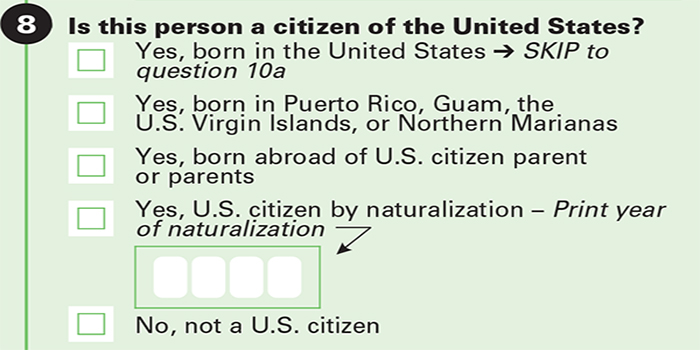Kerby Anderson
The Constitution mandates a survey of Americans every decade. And the Commerce Secretary has discretion over the questions that census takers must ask. In most administrations, that would be the end of it. But Donald Trump is the president, and so just about everything that is proposed in his administration is controversial.
The Justice Department asked census officials to include a question about citizenship, so they can better enforce the Voting Rights Act. Including such a question was so controversial that a number of states have filed suit against the Trump Administration. Some commentators have suggested that the liberal overreaction to the question is a good reason why we should push for it.
The attorneys general argue that asking this question might undercount people in blue states and affect congressional representation. Actually, there are lots of places in red states with illegal immigrants. Here are just a few towns where the percentage of undocumented immigrants exceeds ten percent: McAllen (TX), Yuma (AZ), and Gainesville (GA).
Critics also fear that illegal immigrants will not fill out the US Census forms. That hasn’t been the response with the long-form census that already asks the question about citizenship. On the other hand, it has been a problem getting illegal immigrants to fill out the short-form even with massive outreach programs.
Several other countries (from Australia to the United Kingdom) do include a citizenship question in their surveys. The United States used to ask the question on the short-form until the 1960s and has continued to ask about citizenship on the long-form.
The Justice Department said it needs more data on the location of voters for a fair enforcement of Section 2 of the Voting Rights Act. I think that is reason enough to include the question.
 Listen Online
Listen Online Watch Online
Watch Online Find a Station in Your Area
Find a Station in Your Area










 Listen Now
Listen Now Watch Online
Watch Online
